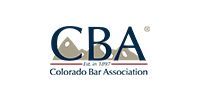DUI and Debt Relief Attorney
Denver, CO
17+ Years of Experience
Open Communication With Clients
Cases Are Not Assigned to Junior Associates or Paralegals
Request Lorem Epsom
Hero Request Form
Thank you for contacting us.
We will get back to you as soon as possible.
Please try again later.
Reliable DUI and Debt Relief Legal Support
At The Law Office of Ryan Peterson, LLC, we recognize the challenges that come with DUI charges and overwhelming debt. Our legal team, led by attorney Ryan Peterson, has 17 years of experience handling these cases. We provide personal attention and clear communication throughout your legal process. You'll work directly with Ryan Peterson, ensuring your case receives focused attention.
We serve the Denver Metro area, including Denver, Jefferson, Adams, Arapahoe, Douglas, Clear Creek, Boulder, and Broomfield Counties. Our services cover DUI defense, debt relief, and bankruptcy consultations. We combine local knowledge with extensive experience to achieve the best possible outcomes for our clients with a personalized touch. If you're facing legal challenges, contact us for a free consultation to start resolving your legal concerns.
Why Choose The Law Office of Ryan Peterson, LLC?
Open Communication With Clients
Cases Are Not Assigned to Junior Associates or Paralegals
Same-Day Consultations May Be Available
17+ Years of Experience
Payment Plans Available
Personal Attention to Every Case


DUI Defense
Our firm handles various DUI cases, from first-time offenses to repeat offenses and commercial driver DUIs. We know Colorado's DUI laws inside and out. Our aim is to reduce the impact of a DUI charge on your life by seeking dismissal, negotiating plea deals, or representing you in court.

Debt Relief and Bankruptcy Lawyer
If you're struggling with debt, we can help. As your debt relief lawyer, we'll look at all options to help you regain financial stability. This might include exploring debt settlement, debt consolidation, medical bankruptcy or credit card bankruptcy through Chapter 7 or Chapter 13 bankruptcy.

Filings and Consultations Lawyer
Legal filings can be complex, but we're here to help. We can guide you through Chapter 7 or Chapter 13 bankruptcy, or provide a personal bankruptcy consultation. We'll help prepare and submit all necessary documents. Our consultations will give you a clear picture of your legal options, helping you make informed decisions about your future.
Here's what our satisfied customers are saying...
At The Law Office of Ryan Peterson, LLC, we take pride in providing exceptional DUI and debt legal services to our clients. We would be grateful if you could share your thoughts about our practice with others. Your feedback helps us improve and helps others make informed decisions. Please take a moment to leave a review of The Law Office of Ryan Peterson, LLC and let others know what you think.






